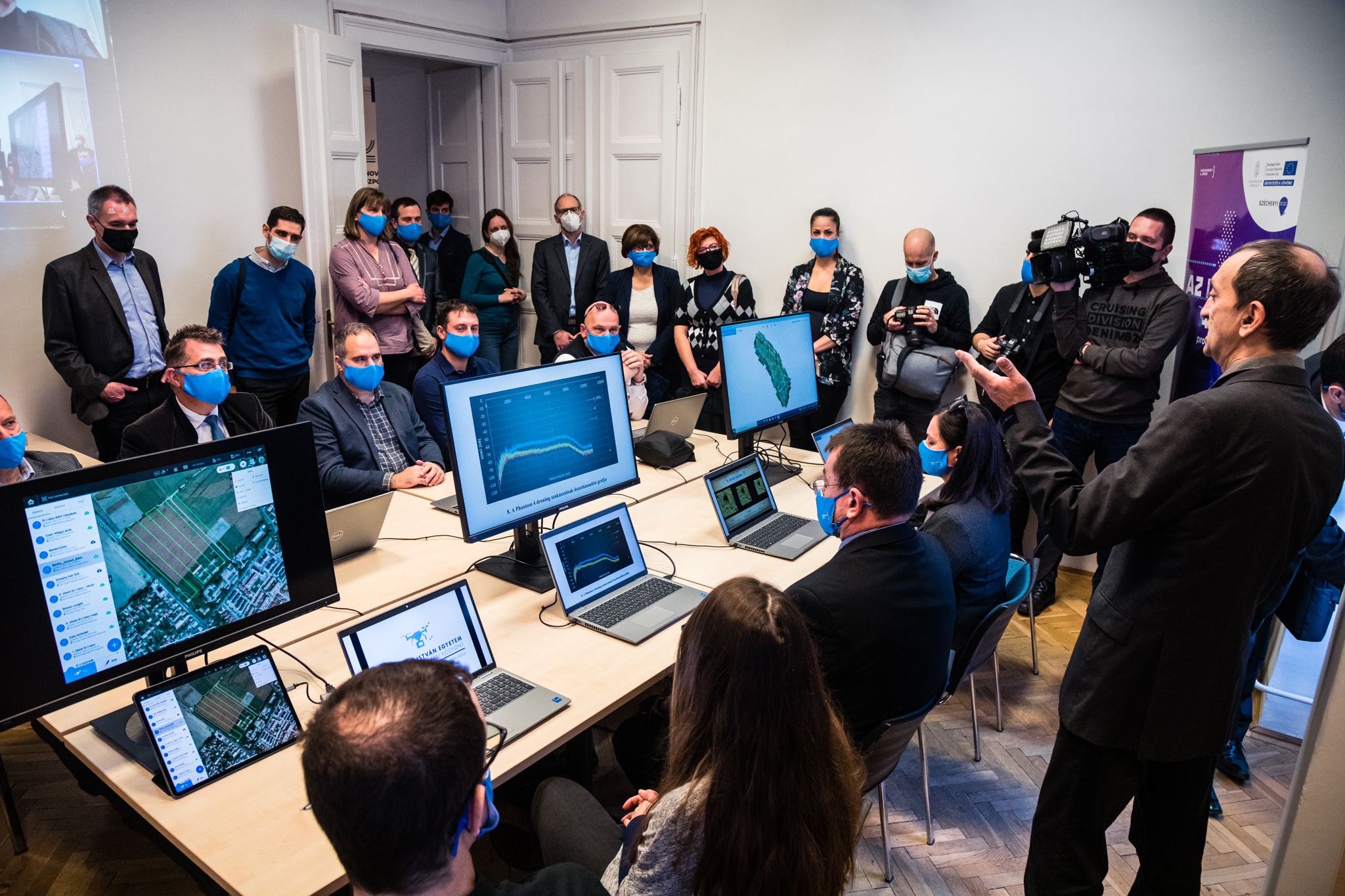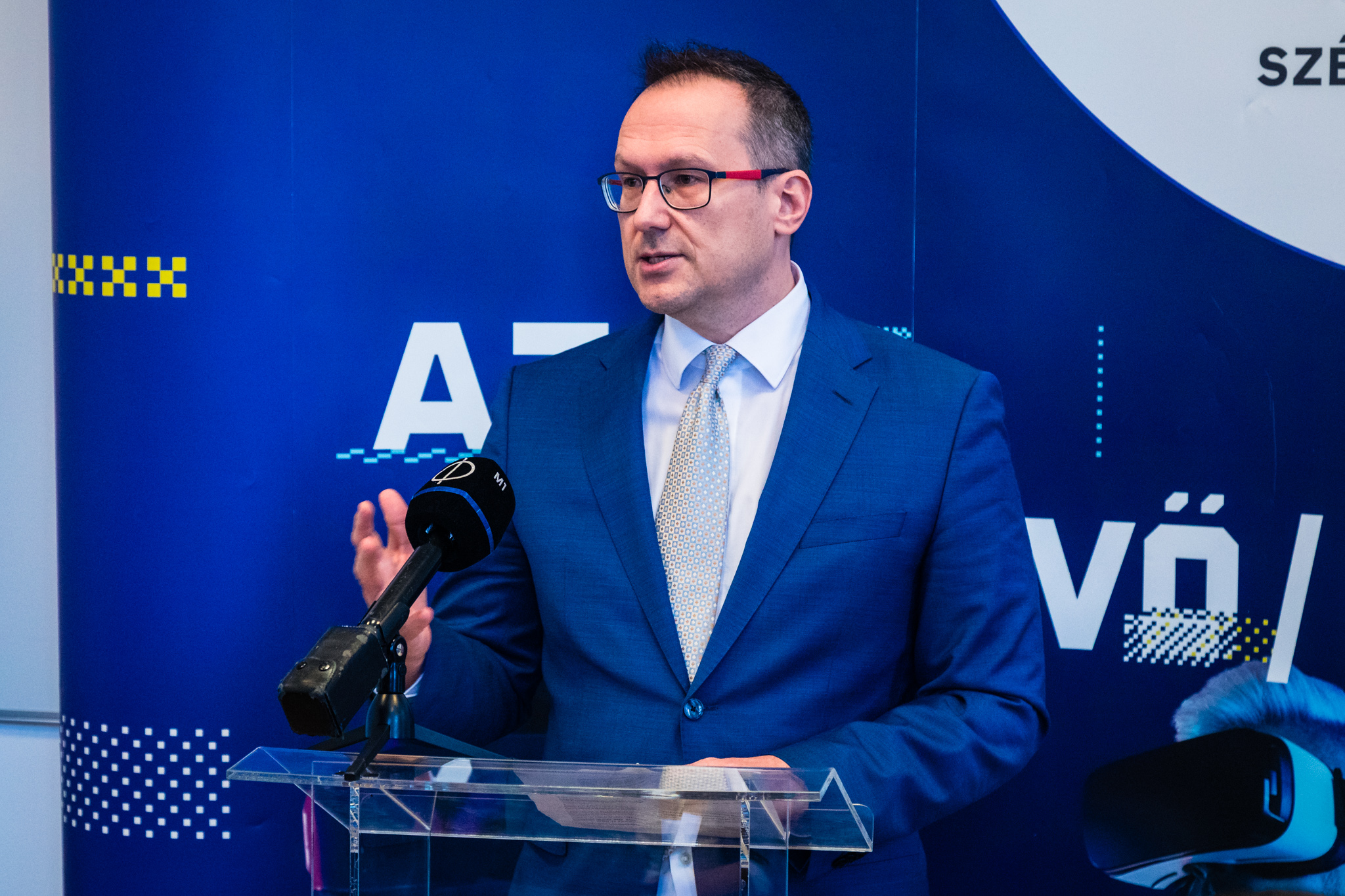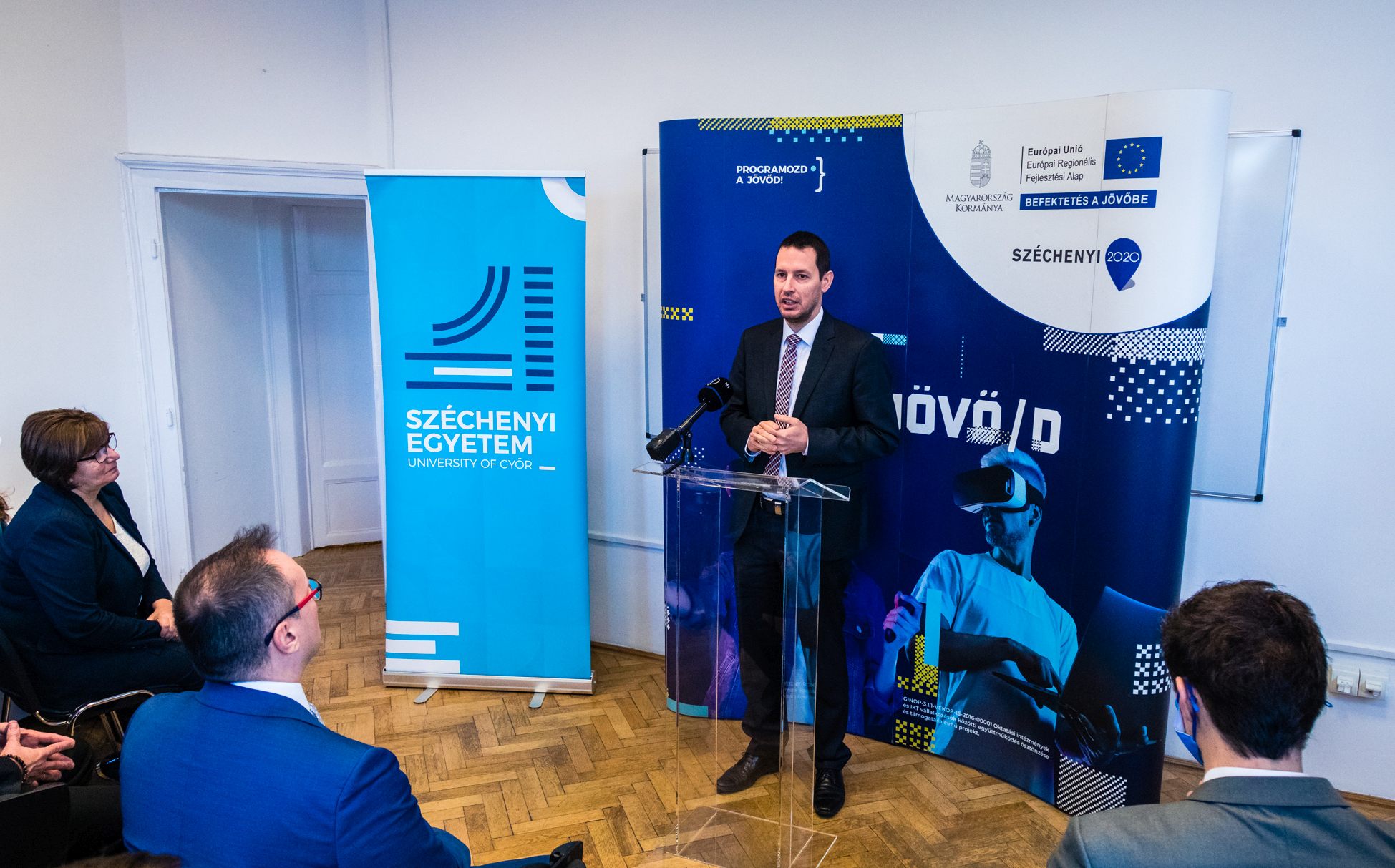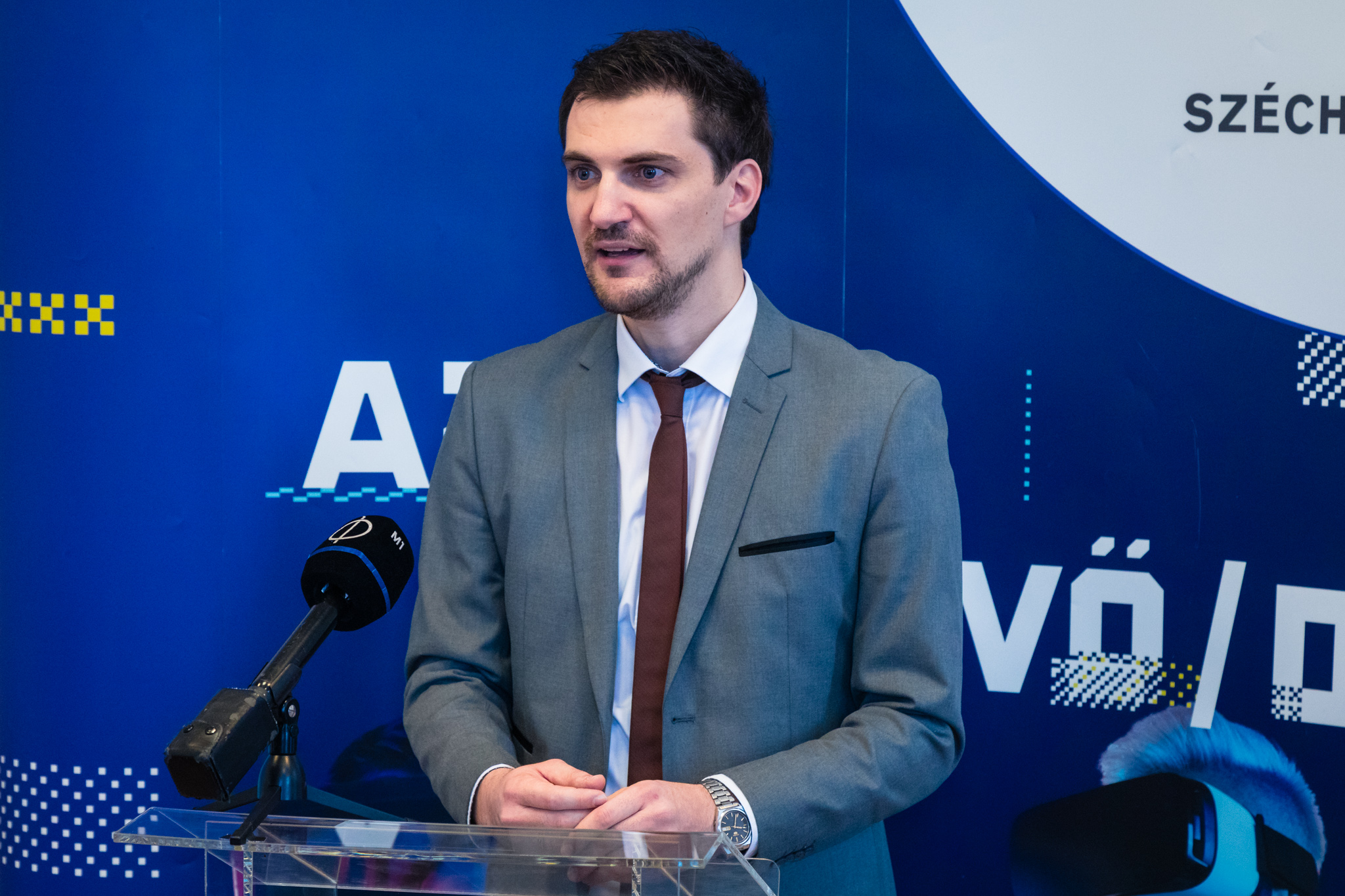SZE’s Digital Development Centre establishes drone lab in Budapest

Széchenyi István University, Győr, this year launched a unique drone control and drone data analysis in-service training course, and in connection with this, the institution's Digital Development Centre has set up a teaching and research laboratory in Budapest with the support of the Ministry of Innovation and Technology. The new development, presented on Tuesday, is another example of the University's commitment to introducing students to the latest technologies.
In 2019, within the framework of the European Union project Programme your future, the Ministry of Innovation and Technology and Széchenyi István University established the Digital Development Centre, with the aim of providing a venue and support for educational and development programmes related to digitalisation and innovation in Hungary.
As part of this, a drone and image processing training and research lab was set up at SZE’s Budapest Innovation and Education Centre, and was unveiled at a press conference on Tuesday. Here, using the latest technology, participants on the drone control and data analysis in-service training course, launched for the first time in February this year, can acquire the appropriate skills and knowledge.
The presentation of the drone and image processing lab was met with great interest (Photo: Csaba József Májer)
"The cooperation we have established with Széchenyi István University, Győr, in recent years is very close and fruitful. The aim of this joint work is to give digitalisation and innovation an appropriate role and space in Hungary, in the fields of education, research and development. The creation of the lab is one of the results of this partnership, from which we expect to train professionals who in their work, via digital technologies, will represent a new branch of the economy. The Hungarian government is paying particular attention to education and digitalisation-related training, as exemplified by Széchenyi István University, where significant innovation work is being done in the field of 5G development. Fast data transmission is one of the most important factors for drone-related developments," said Dr Károly Balázs Solymár, Deputy State Secretary for Digitalisation at the Ministry of Innovation and Technology.
He added that the uniqueness of the course lies in the fact that students learn not only how to operate a drone safely, but also how to analyse and evaluate the data obtained from the drone. For example, the software analysis of drone images can help in agriculture to create accurate yield maps, to determine the infestation of cultivated areas, in water management to identify the location, origin and extent of infestation, in construction to create three-dimensional real estate models and heat maps, and in telecommunications and energy to assess the condition of infrastructure.
Dr Károly Balázs Solymár, Deputy State Secretary for Digitalisation at the Ministry of Innovation and Technology (photo: Csaba József Májer)
Dr Zsolt Kovács, Chancellor of Széchenyi István University, said that as a true university with nine faculties, the institution has recognised that different disciplines can complement and support each other. For example, in the creation of the drone laboratory and in the launch of the drone control and data analysis in-service training course by the Faculty of Agriculture and Food Sciences in Mosonmagyaróvár, they have made use of the strengths of the institution in the fields of agriculture and IT.
The Chancellor also underlined that their aim is to find solutions to real industrial problems, and that as a result of the change in the university model, they want to exploit the results of their research on the market, turning knowledge into usable value.
Dr Zsolt Kovács, Chancellor of Széchenyi István University (photo by Csaba József Májer)
"The drone lab and the drone control and data analysis training will raise the educational quality of our university. Oversubscription shows that we have responded to real market needs, and thanks to the lab we can show students the latest technologies," said Dr Kovács. The 39 participants of the first cohort of the training will soon be graduating. The next course will start in February 2022 and applications can be made via the Széchenyi István University admissions platform.
At the press conference, István Drotár, head of the Digital Development Centre at Széchenyi István University, said that the lab is a training and R&D workshop that both alleviates the characteristic labour shortage in the ICT sector and provides answers to technological challenges. He noted that a related training course for agri-digitalisation engineers is also planned.
István Drotár, Head of the Digital Development Centre at Széchenyi István University (photo by Csaba Májer József Májer)














